A family history of Reedcraft Weavers (1940-2011)
By Claudia C. Breland
Current Contributor
Ask any of my children where I would go on my dream vacation, and they would be able to tell you instantly: a village named Beulah—in the northwestern Lower Peninsula of Michigan—has my heart.
My great-grandfather Percy Reed settled there in 1902 to open up a shoe store, and his son Maurice Reed later built a cottage on Crystal Lake and opened a weaving shop.
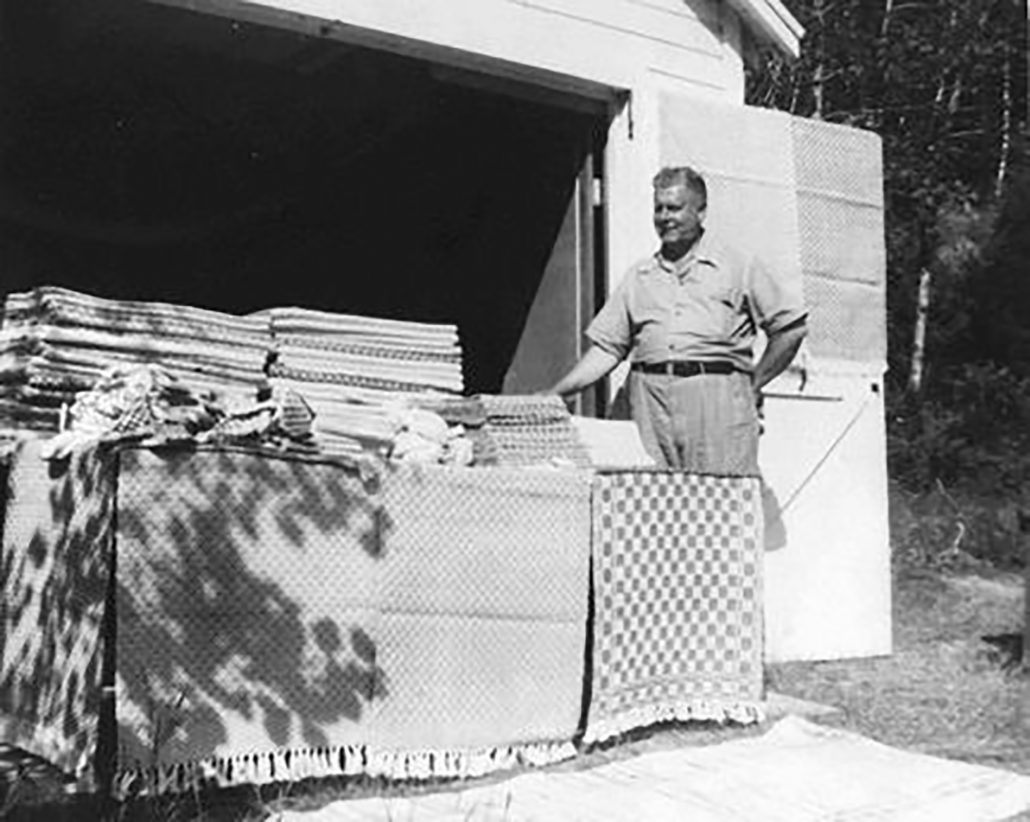
Although I do not remember it, my first trip to Beulah was as a six-month-old baby, spending several weeks at the cottage one summer with my parents. As I grew older, I have memories of swimming in the clear, cold water, making doll dishes from the clay that I dug out of the banks, and toasting marshmallows over the fireplace on the outside patio. I remember, as an eight-year-old, bedding down for the night on one of the beds in the attic; I was covered with an old quilt, with the gabled ceiling so near that I could reach up and touch it, while listening to the cars going past on Crystal Drive.
When I was about 10, my grandmother died and my grandfather, Maurice Reed, sold the cottage, but our visits to Beulah continued.
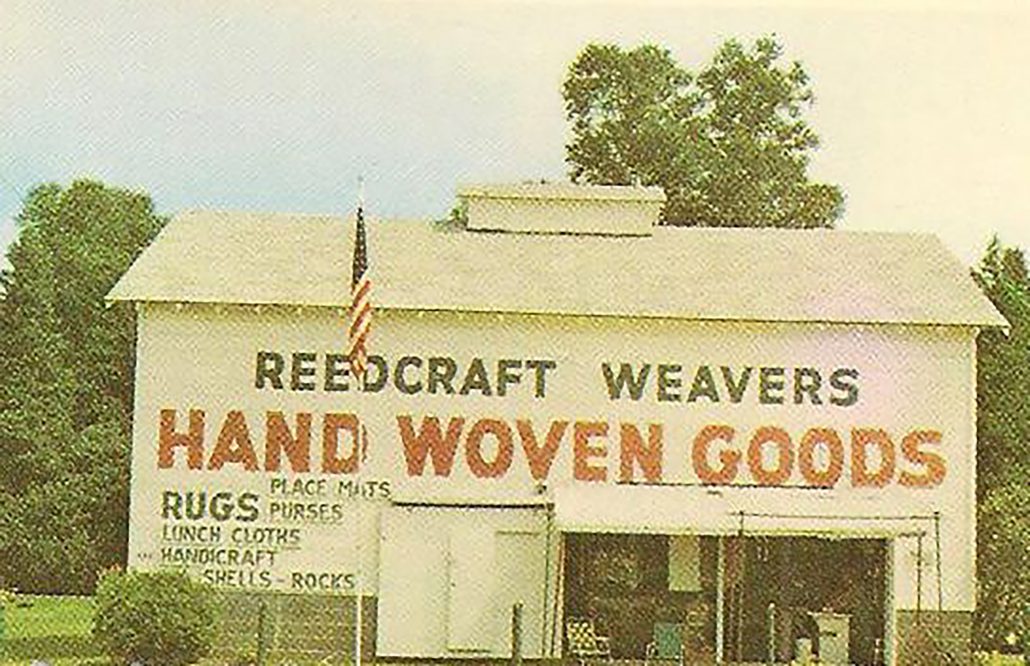
I remember visiting my aunt and uncle, Lewis and Jane Small; playing with my older cousins, Dorcas, Cherith, and Teresa; and walking the two blocks from their house in town to the public beach. I remember filling out a card for the village library so that I could check out books—and being amazed when I visited later, as a college student, to find that the library still had my card on file.
As far back as I can remember, Reedcraft Weavers has been a part of my life, until my cousin called to tell me that the family property had finally sold in 2011 to The Market Basket next door.
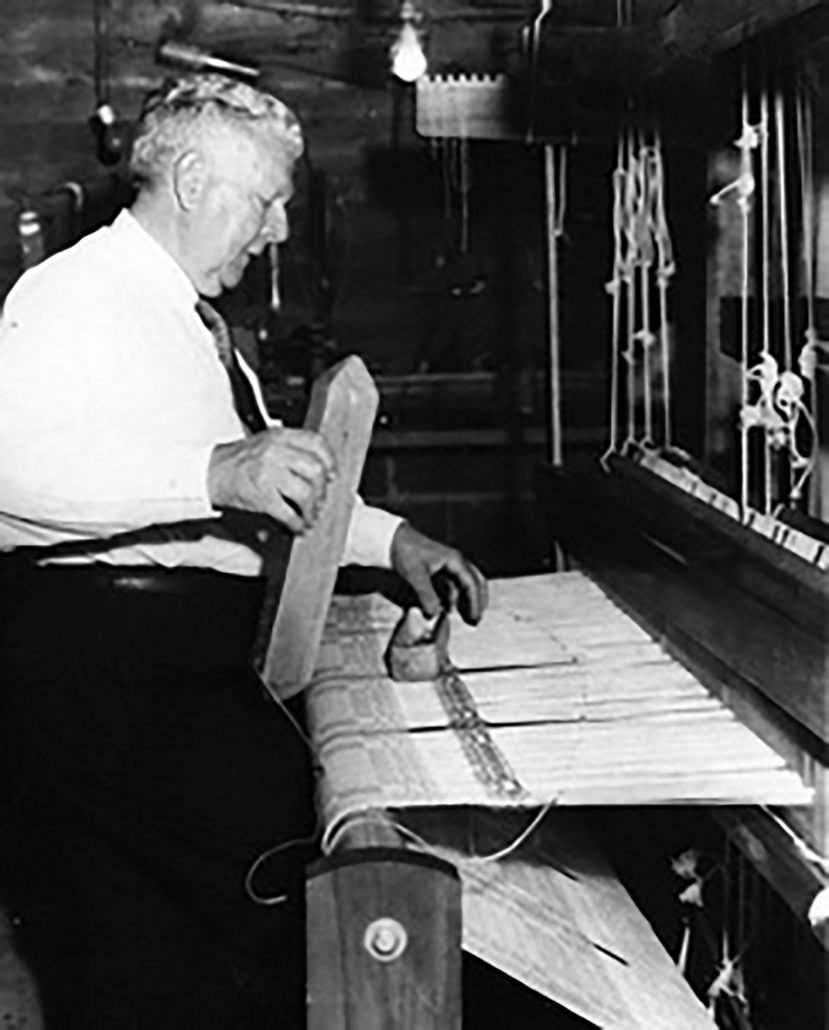
When I was growing up in Cincinnati and we would drive to Michigan for our summer vacation, Beulah was an important destination, in between stopping to see family in Detroit and heading for our rented cabin in the Upper Peninsula.
As I mentioned, my father’s parents, Maurice and Ruby Reed, had a cottage on Crystal Lake that they had built in the 1940s and named Columbine Cottage. Grandpa Reed had developed an interest in weaving while working as a truant officer in Lansing, and when he retired to Beulah, he set up a roadside stand to sell his rugs.
From his journal on September 12, 1945:
“Previously I have sold all my woven goods from a stand under the trees across the road from the garage, but this year I put the table right in front of the garage door, and people stopped there just as readily.”
And August 5, 1950:
“Have felt for several years that I’m not getting enough business in this side road location, and wanted to do something about it. Today I did. Went in to see Seward Nichols about a location. He had the former icehouse/boat storage for sale, a huge building between the Crystal Garage and the new Texaco filling station. It is really an ideal place, and the big building is extremely desirable in my business. It is second door from the Cherry Hut, an easy one-minute stroll, and will surely attract some people who stop there. Would have to install a washroom, some partitioning, a big garage door in front, and some filling is necessary in front, which will leave plenty of parking space. They ask $5,000 but Dad thinks they’ll take $4,000.”
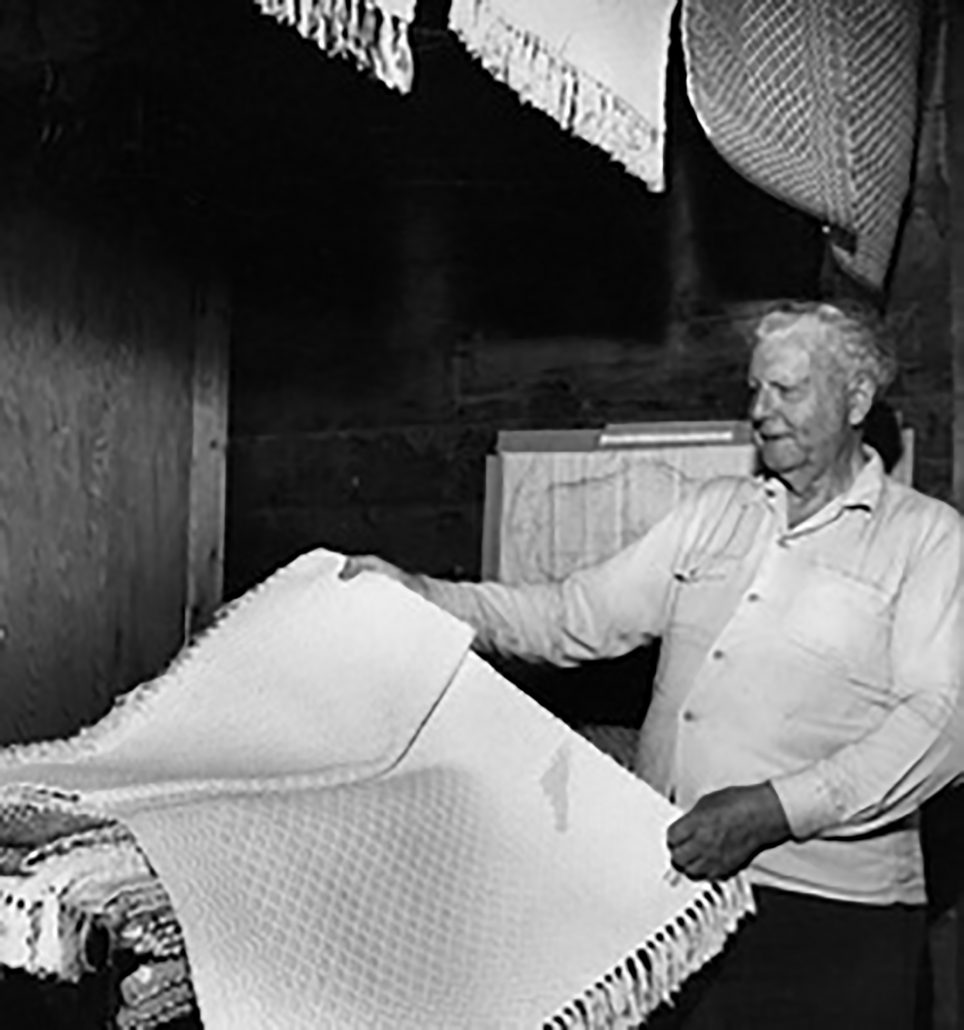
When I was growing up, every rug in our house was made by my grandfather, and after he retired, they were made by Uncle Lewis. Whenever my mother needed to get a Christmas or wedding gift for family and friends, she always ordered a set of Reedcraft placemats. For years, my parents had a beautifully woven blue-and-white bedspread on their bed; now it graces mine.
When we visited Beulah during the summer, it was wonderful stepping out of the hot sun and down into the cool dimness of the shop, where we could hear the rhythmic thump-jangling of the loom. We would wander among the piled displays of rugs—all different sizes—as well as placemats, potholders, stair-runners, and bedspreads. When my brothers and I got bored, we would go out and hunt in the parking lot for Petoskey stones to take back home with us; it was always fun to find something that initially appeared as a plain gray rock but actually was a “hidden gem” to us.
Whenever I went to Beulah, Reedcraft Weavers was there—first as a whitewashed building with red letters, then as a bright red building with white letters.
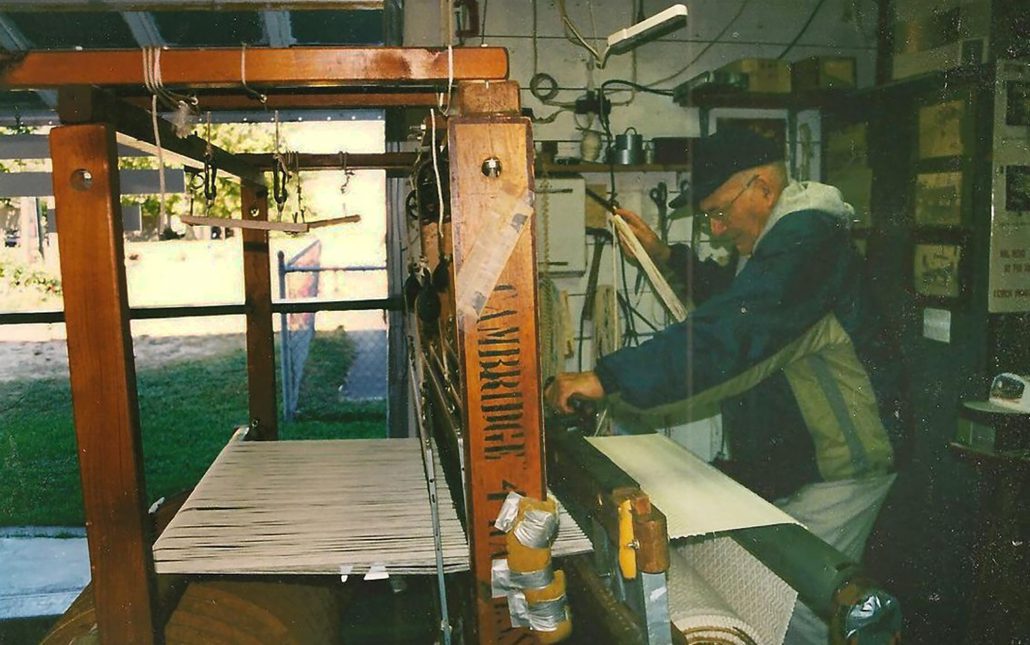
We went to Beulah every summer from 1959 to 1967, when we moved to Florida. In 1970, we drove from Florida to Michigan and spent time in Beulah. By that time, Uncle Lewis had bought the shop and business and had taken over the weaving, so that Grandpa could retire to Florida.
While I was attending college in Tallahassee, I drove to Michigan a couple of times during spring break to visit Beulah. Each time, I’d buy something to take home with me—a rug or a placemat, or just some Petoskey jewelry, to remember my visit.
In 1998, I had the opportunity to take my children back to Michigan for a road trip around the state, which included Howell, Mackinac Island, the Upper Peninsula, and Sebewaing. We also spent four days in Beulah, which we all agreed was not nearly enough time. I taught them both how to look for Petoskey stones, and Uncle Lew taught my daughter the basics of weaving. We all learned some family history on that trip, as I told my children about coming to the shop when I was their age, and Uncle Lewis told stories of growing up in Beulah.
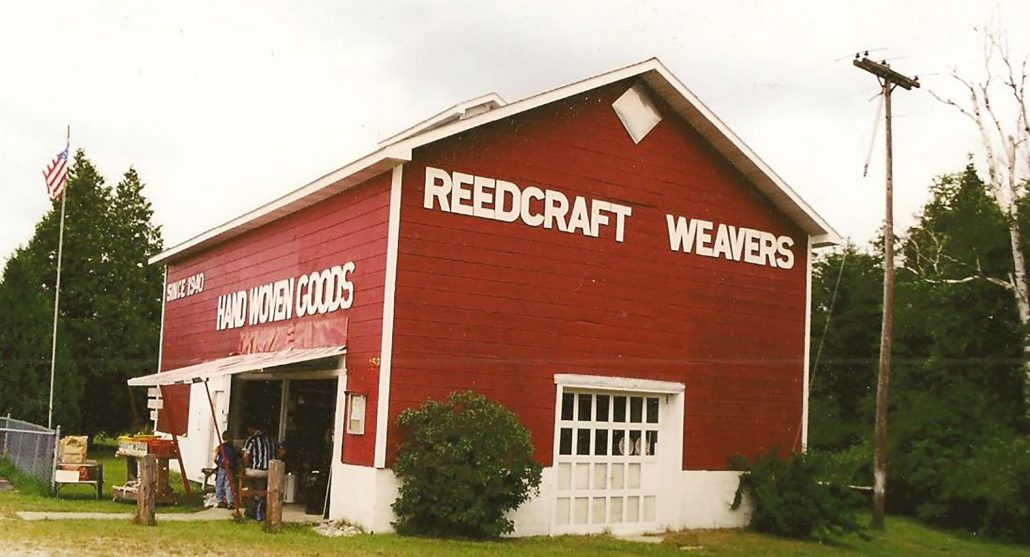
When I was growing up, I knew that Reedcraft Weavers would always be there—I think if you had told me when I was 12 that someday it would go out of business and the building and the land would be sold, I would have been grief-stricken.
However, now it doesn’t phase me. I have the photographs—some of them going back to the 1940s—and my grandfather’s journals, and family letters. My children have the stories that I have told them.
But most of all, I have the memories—and it is because of those that Reedcraft Weavers will live on.
Claudia Reed Breland is a professional genealogist, living in Gig Harbor, Washington. She is the author of From Pie Stand to Icon: The 100-Year History of The Cherry Hut.
Featured Photo Caption: The author’s children, Steven and Stacy, at Reedcraft Weavers in Beulah during a visit in July 1998. The author’s paternal grandfather, Maurice L. Reed, founded Reedcraft Weavers originally as a roadside stand in the 1940s and later as a barn full of rugs, placemats, potholders, stair-runners, and bedspreads. The building and land were sold to The Market Basket, located next door, in 2011, after seven decades in business between two generations. Photo courtesy of the personal collection of Claudia Reed Breland.
SIDEBAR
When my parents moved to Western Washington in 1975, I continued my studies at Florida State University. During my last summer there, I was compelled to write this essay; I think it is significant that I was not homesick for Merritt Island, or the new home in Bellevue, Washington—I was homesick for Beulah.
Beulah Land
My first glimpse of Crystal Lake is always sudden and always breathtaking. As my car winds down the hill from Honor, I can see sailboats on the lake below, and cottages (mostly for summer people) through the trees on the shore. Crystal Lake is well-named; spring-fed, it is a clear, icy blue that is frigid, even in June. The hills surrounding the area on Crystal Downs are deep green and friendly, and silvery poplar leaves flash in the wind.
I go first to the house where Aunt Jane and Uncle Lewis have lived for more than 20 years. The porch sags and the kitchen linoleum is uneven in places, but that isn’t noticed when we sit there on summer evenings, absorbed in a game of dominoes.
I especially love mornings in this house—I wake to the sound of my aunt’s footsteps in the kitchen and to the smell of sausages and pancakes. And there is always a bowl of fresh fruit beside each plate: raspberries, peaches, or the famous Michigan cherries. When breakfast is ready, Aunt Jane stands under the grate in the living room ceiling to call me down.
After breakfast, Uncle Lew walks the half-mile or so to the shop, and sometimes I walk with him. As he points out the house where my great-grandparents, Percy and Mary Reed, lived almost 100 years ago, I wonder: what kind of people were they? Did they love Beulah as much as I do?
The shop (“Reedcraft Weavers – Handwoven Goods”) is a huge whitewashed barn that is set back from the main road on a circular gravel driveway. My grandfather, Maurice L. Reed, began weaving as a hobby in the 1940s and originally displayed his woven rugs at a roadside stand. Now, the business is carried on by his son-in-law, my uncle. As I step down into the shop, blinking in the dim coolness, I can hear the loom’s rhythmic thumping as Uncle Lew weaves a rug or a placemat. As I wander among the piled rows of rugs and placemats, I feel a definite pride in belonging to this family.
Some mornings, I’ll hop into my car and drive along the north shore of Crystal Lake to Point Betsie, on Lake Michigan. I’ll sit in the shade of the lighthouse, leaning against a piece of driftwood to write a letter. Two freighters are steaming past, headed perhaps toward Manistee or Sault Ste. Marie. The waves pound against the shore, and I feel altogether contented.
On the day before I leave, I climb the big hill to Benzonia. Here is the graveyard where three generations of Reeds are buried. As I settle myself on the crest of a hill and look across the valley, I think of what John Bunyan wrote in Pilgrim’s Progress:
“…and entering into the Country of Beulah, whose air was very sweet and pleasant, they solaced themselves there for a season. In this country the Sun shineth night and day; here they were within sight of the City they were going to, because it was upon the borders of Heaven.”
Claudia Reed
Tallahassee, Florida, June 1977
SIDEBAR ENDS

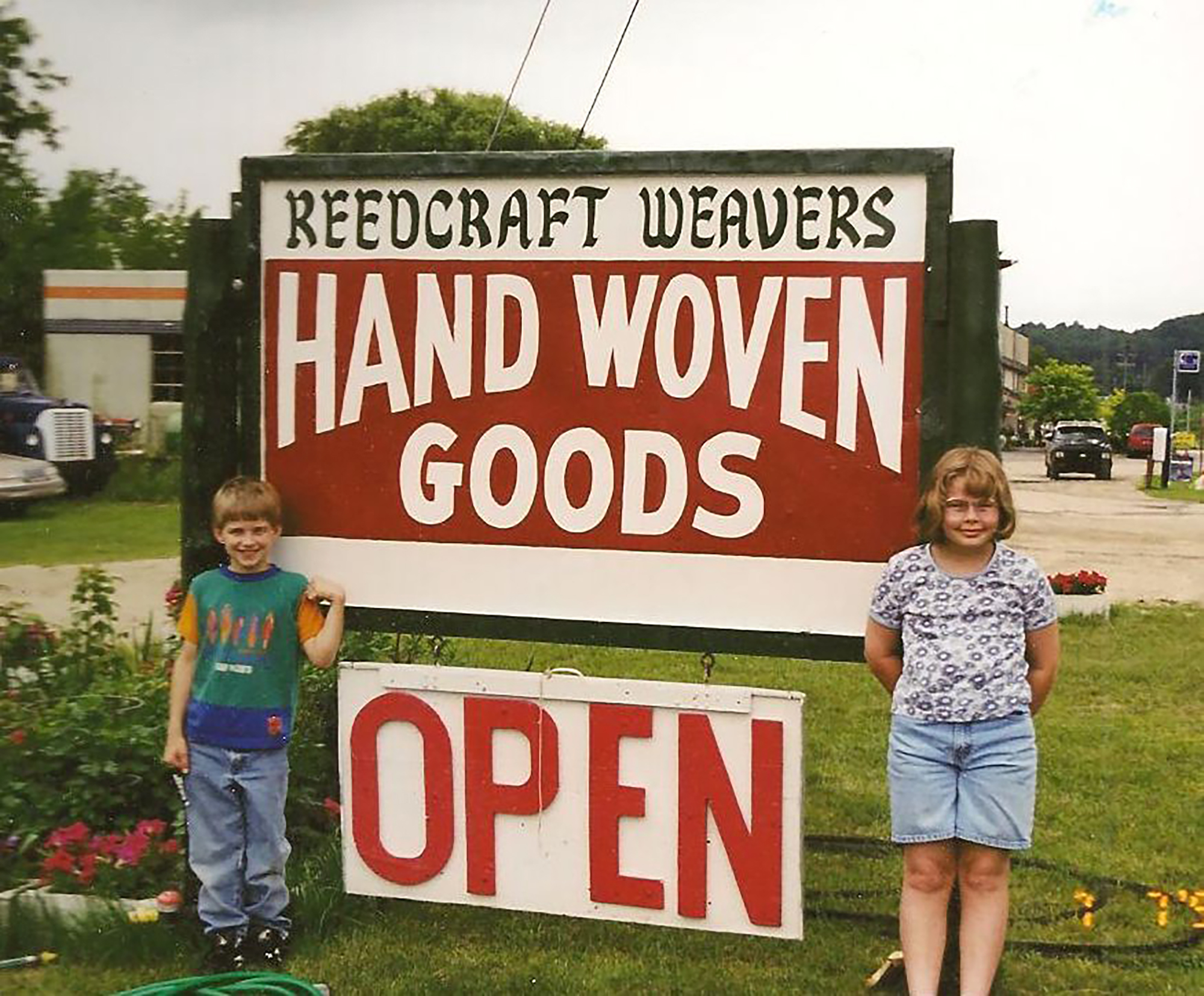

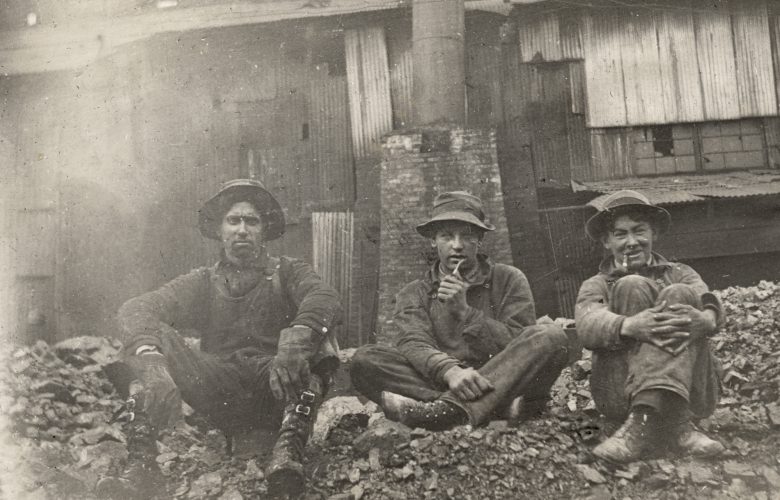
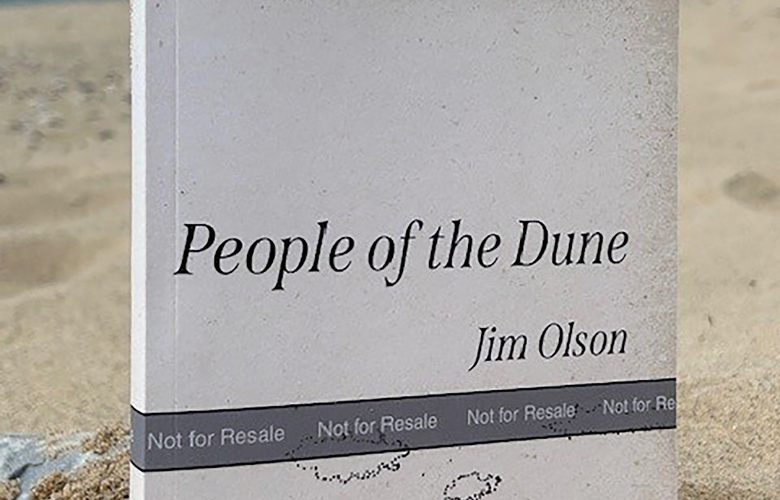
I love that last quote! So true!
Lovely story. I think we still have some reedcraft pieces at our cottege on the north shore. Thanks for sharing.
Like Claudia, I went to Reedcraft every summer with my grandfather. The potholders made by Lewis are the best my family has ever had. Sadly, the ones at my winter home are now worn out, but I still have some to use at my cottage. I’m so glad I bought LOTS of them!